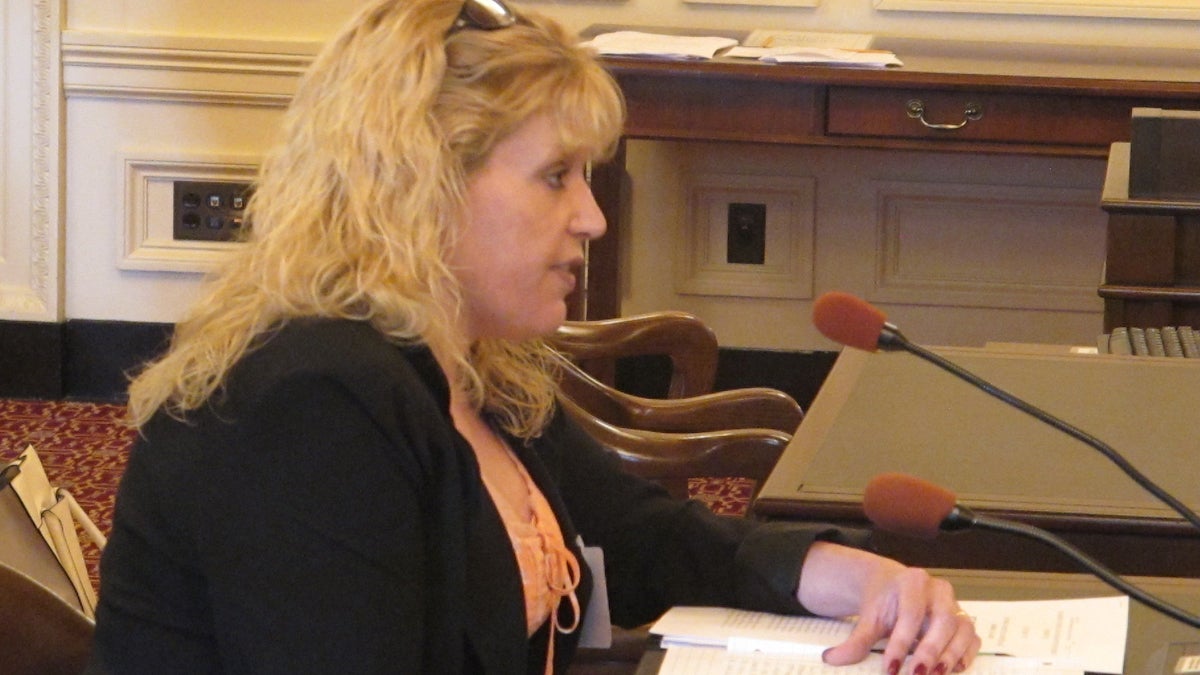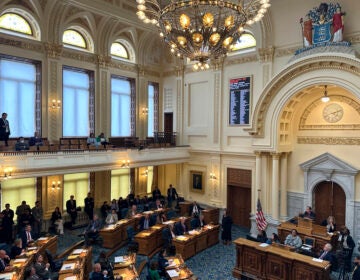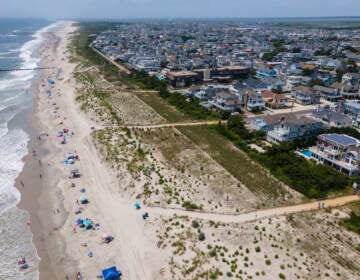Foreclosure delay sought in NJ to give Sandy-stricken homeowners ‘breathing room’

Nancy Wirtz tells New Jersey lawmakers the measure could save her Sandy damaged home in Forked River from foreclosure. (Phil Gregory/WHYY)
A bill under consideration in New Jersey would delay for three years any foreclosure of mortgage obligations on homes damaged by Superstorm Sandy.
During a hearing Monday in Trenton, representatives of the banking industry expressed skepticism of the plan, predicting they would be stuck with the bills if homeowners default.
But Merideth Mueller, who was the pastor of First Presbyterian Church in Tuckerton when Sandy displaced many families there, said the bill will help them recover financially and emotionally.
“They need a break from the constant pressure, from the worries of foreclosure and all the other worriers and anxieties that have taken over their lives,” she said.
Nancy Wirtz, whose Forked River home was destroyed by Sandy, said a contractor took the $75,000 in grant money she received and just knocked down the house.
“Something in place like this to help me save my home from foreclosure would help me be able to get other funding to help establish my home to be rebuilt, so I wouldn’t lose my home,” she told lawmakers. “All we’re asking for is a chance to rebuild and start over.”
Speaking in opposition to the measure, Michael Affuso of the New Jersey Bankers Association said it does not consider a homeowner’s ability to repay.
“Functionally this is what’s going to happen. They’re not going to pay their property taxes,” he said. “The bank is going to have to pay their property taxes and insurance to maintain the primary lien position.”
Christina Tello with the Affordable Housing Alliance said the bill will give Sandy victims more time to figure out what to do about their mortgage.
And, she said, it would also be good for banks.
“It’s in their best interests to allow the properties to be repaired because that then restores their asset, and they have a vested interest in that as well,” Tello said. “So if the homeowner does default and cannot afford the home in three years, then the bank has a property that’s fully restored, and they can try to sell.”
WHYY is your source for fact-based, in-depth journalism and information. As a nonprofit organization, we rely on financial support from readers like you. Please give today.




